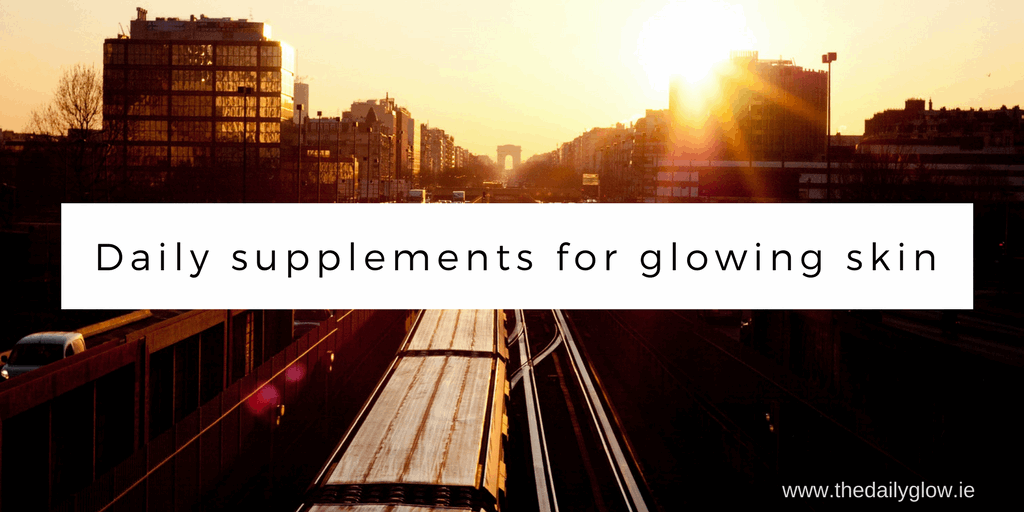
The best supplements for glowing skin
While I do try and follow a healthy diet for the most part (weekly Wow burger habit not withstanding), and I don’t believe you should be too reliant on supplements, there are a few things I find hard to get enough of solely from food – and really recommend for that added glow. And, with Black Friday approaching, it’s not a bad time to stock up on them.
Fish oils and omega 3
So what’s the deal with the omegas? Do you need 3, 6 and 9? No. Omega 9 is not classed as an essential fatty acid (which means your body can make it from other things), but you do need to make sure you’re getting enough 3 and 6 as your body can’t create these . The Western diet tends to be heavy on omega 6, but not so much 3. Omegas 6 and 3 work best when consumed in a ratio of somewhere between 1:1 and 5:1, however, many of us tend eat 15-16 times as much omega 6 as omega 3 – which throws this way out of balance. Corn oil, sunflower oil, rapeseed oil and nuts and seeds all contain plenty of omega 6, but you really need to look to oily fish, along with flaxseeds and walnuts to get your omega 3. (How many times can you say omega in one paragraph?) I’m not great for cooking fish (or meat for that matter), so I take a fish oil supplement daily with my bulletproof coffee. Omega 3 helps boost brain function, decrease inflammation (essential for glowing skin, regardless of your initial complaint) and improve skin moisture – sorely needed with the central heating I’ve been blasting over the past 24 hours (how am I so surprised every winter when it gets this cold?).

Zinc
Low zinc levels have been linked to acne, as I’ve mentioned before, and whenever I run out of it for long enough I get white flecks on my nails – another sign of zinc intake being less than optimal. Zinc picinolate and zinc sulphate are the more easily absorbed forms – I’ve stuck to zinc picinolate (out of habit, I know where it is on the shelf)and find it works well. Certain medications or a copper deficiency can be negatively affected by zinc supplementation, so do check with your doctor first if either might affect you.
Gelatin and Collagen protein powder
Vegetarians and vegans look away now – collagen protein powder appears only to come in animal based form (however, if you do come across something similar that is plant-based, please let me know). It is dairy free though, which I like, as the more common whey based protein powder can cause a skin flare up. I’m currently taking the Bulletproof brand of Collagelatin, which is sourced from grass-fed cows, and has a similar nutrient profile to the oh-so-fashionable “bone broth” – basically loaded with amino acids and collagen that can benefit your skin, joints and bones, and help with weight management (it fills you up). But it is a hell of a lot easier to prepare than broth – I blend mine in coffee, and have also made raspberry jellies with it (not quite as time intensive as bone broth – have you seen the advised cooking times for that stuff? 12 hours appears standard. Ain’t nobody got time for that – incidentally though, Dunnes Stores do a decent one in their fresh foods/fridge section). Gelatin can also facilitate healing of the lining of your stomach and reduce inflammation – and can reduce wrinkles and cellulite – so once again leading the way toward clear, glowing skin.

Currently I take the above supplements every day (or I will be again as soon as my order from discountsupplements.ie arrives – I am running low) along with magnesium and a B vitamin. This is the combination that I have found works well for me, after a lot of trial and error – I wouldn’t recommend that recipe as an across-the-board combination for everyone, but I’d love to hear what you would recommend, and please mail me if you’ve any questions about brands or formulations.

